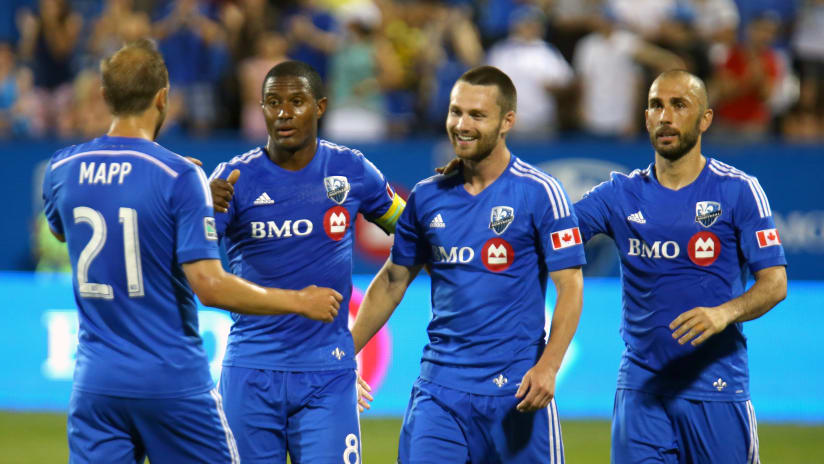The 32 teams that will compete for the FIFA World Cup in Russia are decided, and this year, it seems some of the usual invitees didn’t make the cut. Although it’s always nice to see different teams at the big dance, here is a starting 11 with some of the names we will miss the most during soccer’s biggest tournament.
Gianluigi Buffon – Italy
If you love the game of football unequivocally, that means you love Gianluigi Buffon. The Italian legend announced months before that this would be his last major tournament with the Azzurri, but the Italians fell just short of a World Cup berth when they lost 1-0 to Sweden over two legs. This marks the first time since 1958 that Italy has not qualified for a World Cup, and the first time Gianluigi Buffon will miss a major tournament in his entire international career.
As a goalkeeper, Buffon has cemented his name as one of the best keepers to ever play the game, by winning an array of trophies for both club and country, and for his expectational personality off the pitch.
Antonio Valencia – Ecuador
Antonio Valencia has proven himself very capable at the right-back position, having especially flourished under the tutelage of Jose Mourinho at Manchester United, and has developed as a leader on a young and promising Ecuadorian side.
Ecuador started the gruelling South American qualifying process with four straight wins, only to lose eight of their next 10; and if there’s one thing you absolutely need if you hope to be successful in World Cup Qualifying, it’s consistency.
Leonardo Bonucci – Italy
You’d be hard pressed trying to find a better centre-back than Leonardo Bonucci not playing in the World Cup in Russia in 2018. The AC Milan man used to be an integral part of Juventus’ defence beside his compatriot Giorgio Chiellini and in front of Buffon before making his way to Milan during last summer’s transfer window. It may not be his fault Italy isn’t progressing (the Azzurri only allowed one goal in two games during their playoff against Sweden), but he isn’t going to be featured in Russia all the same.
David Alaba – Austria
Austria has not qualified for the World Cup since France hosted the tournament in 1998. However, the expectation they created, coming into the last Euro Cup Finals in 2016, despite a first-round exit, led us to believe that they would make the cut this year, and we would get to see Bayern Munich’s David Alaba in action.
Obviously, that wasn’t the case, considering the man from Austria is being featured on this list. Alaba has impressed with Bayern, becoming their youngest player to reach 50 appearances and is arguably considered one of the best left-backs in the world. What’s particularly impressive about Alaba is his versatility, having served in many roles for Bayern Munich, although the former boss Pep Guardiola once said that his best position is left-back, even if he doesn’t know it himself.
Michael Bradley – United States
Michael Bradley was on the field the night the United States were eliminated, falling 2-1 to Trinidad and Tobago in what proved to be a very disappointing night in the history of soccer in the United States. Michael Bradley will now shift his focus to getting Toronto FC through to a second straight MLS Cup Final, as they prepare to visit the Columbus Crew SC on Tuesday.
Bradley found better form under Bruce Arena, who allowed him to drop deeper into the defensive side of the field, where the American midfielder is good at keeping possession and opening the play. Still, it wasn’t enough to see Bradley through or for Bruce Arena to keep his job after a dismal qualifying campaign.
Christian Pulisic – United States
One of the most exciting players to come out of the United States in a very long time is Christian Pulisic. The young American of Croatian descent has impressed many in the footballing world despite his very young age, and has already proven to be an invaluable piece for Bundesliga side Borussia Dortmund. Pulisic first joined their academy at 16-years old, quickly rising through academy ranks to earn himself a spot on the first team. He would go on to break the record for the youngest person in Bundesliga history to score a goal, and the youngest to ever score a brace as well.
It is ironic that the United States failed to qualify for the first time since 1986 when they have their most exciting prospect yet on their team, a youngster who was even asked to play for the Croatian national side but who refused. I guess we’ll have to wait until 2022 to potentially see Pulisic in a World Cup.
Marek Hamšík – Slovakia
Watching Slovakia play in international tournaments is always enjoyable, especially because of this man, Marek Hamšík, who plays as a centre-attacking midfielder for Napoli in Serie A. Slovakia’s only recent World Cup qualification came in 2010 in South Africa - where they advanced to the knockout stage but lost 2-0 to Paraguay – and they’ve qualified for the Euro once as well in 2016.
Hamšík, being the key player in both qualification campaigns, is an attacking midfielder with lots of pace, who likes taking the ball to defenders and making driving runs into the box. Pavel Nedved once even referred to him as his “heir.”
Gareth Bale - Wales
The Welsh national side was extremely irrelevant before the arrival of their star, Gareth Bale. It’s not very surprising to see that the Welsh did not manage to qualify for their first-ever World Cup, but considering their performance at the 2016 Euro Cup, where they lost to Portugal in the semifinals, people were still hoping for a tiny miracle.
Wales came just short, finishing third in their group just two points behind Ireland. It came down to the last game, Wales needing a win to qualify for the playoff, but there was nothing to be done as Ireland edged them 1-0, a disgruntled and injured Gareth Bale forced to watch from the sidelines.
Arjen Robben – Netherlands
Arjen Robben has become a household name in soccer. There’s nothing like watching Robben control the ball at full speed, running down his favorite right flank, kissing the line as defenders scramble behind him, and then cutting in at the edge of the box so elegantly, leaving a few players in his wake, curling the ball past the keeper with that magic left foot.
This is the image that crosses my mind whenever I think of the Dutchman. After having missed out on qualifying for the Euro Cup in 2016, this will now be the second straight major tournament that won’t feature Arjen Robben and the Netherlands, a team that was runner-up to the 2010 World Cup against Spain.
Lorenzo Insigne – Italy
Napoli’s red-hot start to the season can be largely credited to the stunning play of Lorenzo Insigne. The 26-year-old Italian striker has been a revelation this year, garnering interest from some of the biggest clubs in Europe. However, even Insigne couldn’t stop Italy from crashing out of the World Cup, but then again, he never really got the chance too.
In leg 2 against Sweden, the now fired Gian Piero Ventura took heat from one of his own players, Daniele de Rossi, who angrily pointed towards Insigne, motioning to put him on the field when the Azzurri only had one substitute remaining. Insigne’s role in the playoff against Sweden was limited to just 10 minutes in the first leg, coming in for Marco Verratti in a position he is not used to playing in. Considering Insigne’s improving play, he will be sorely missed next year in Russia.
Alexis Sanchez – Chile
The first tragedy of the 2018 World Cup has already happened, when Chile failed to qualify for the tournament, meaning we won’t get to see the likes of Alexis Sanchez or Arturo Vidal in Russia next year. Chile has steadily grown to become one of the dominant forces of South American football, which was cemented when they beat Lionel Messi and the Argentinian national side in two straight Copa America Finals.
Sanchez has been the team’s best player and recently became the national side’s best goal scorer in their history when he scored against Germany at the Confederations Cup.
Notable absentees: Giorgio Chiellini (Italy), Pierre-Emerick Aubameyang (Gabon), Virgil Van Dijk (Netherlands), Clint Dempsey (United States), Arturo Vidal (Chile), Jan Oblak (Slovenia), Riyad Mahrez (Algeria).





